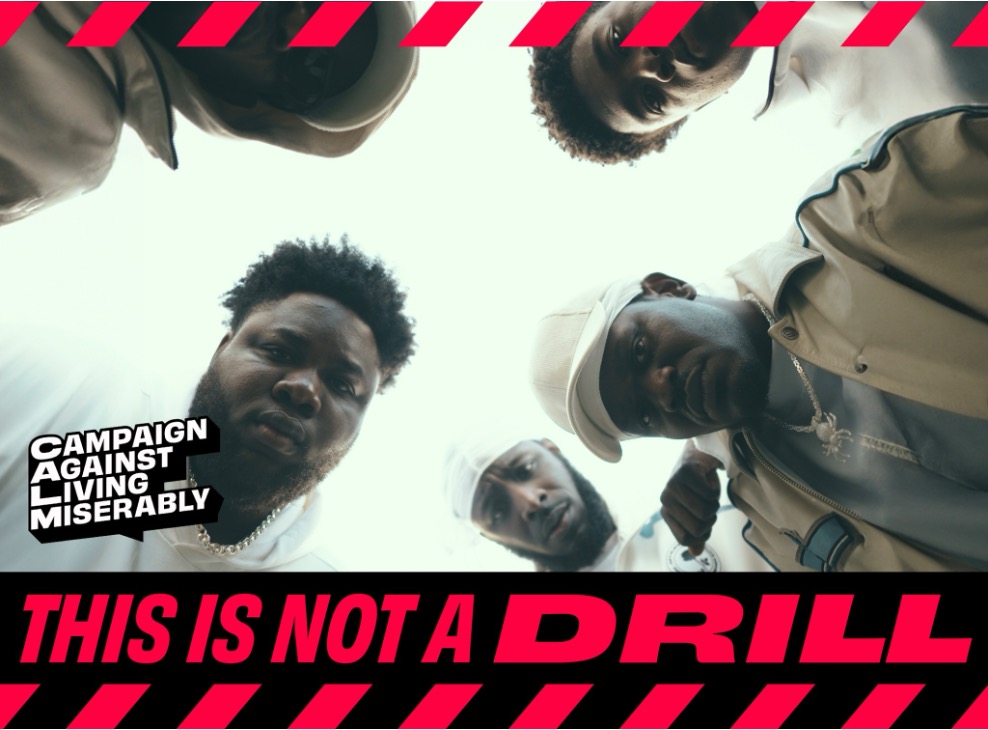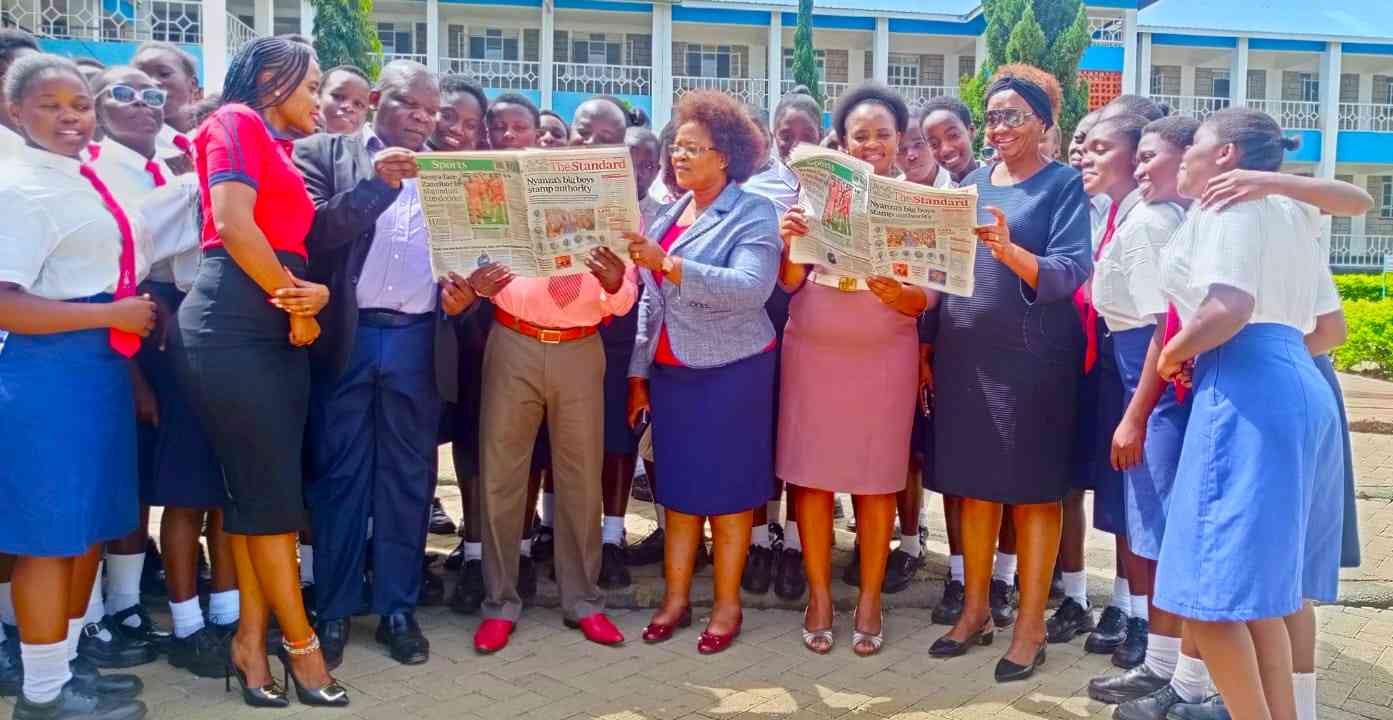
In Kenya’s vote-rich Kikuyu community, opinion is sharply divided over outgoing President Uhuru Kenyatta’s move to back his one-time rival Raila Odinga, rather than his deputy William Ruto, as his successor in the tightly-contested election set to take place on 9 August.
Mr Kenyatta – who has reached the constitutional limit of two terms in power – was long regarded as the community’s political kingpin, with its elders proudly referring to him as “our son”.
But during the BBC’s visit to Nyeri county – which lies in the Kikuyu heartland of Mount Kenya – it became clear his credibility has taken a knock over his decision to endorse Mr Odinga in what he has portrayed as an attempt to forge national unity after decades of political animosity.
Lawyer Wahome Gikonyo felt Mr Kenyatta had betrayed Mr Ruto, who had helped him win two elections against Mr Odinga.
“Ruto did the donkey work in 2013 and 2017. Were it not for him Uhuru would not have become president. Is that the way to repay a friend?” Mr Gikonyo remarked, as he spoke to the BBC in his office in the county’s biggest town, also known as Nyeri.
Some residents, like Pastor Hannah Kanyithere, felt Mr Kenyatta should not have become involved in the battle over his successor.
“Why is the president taking sides in this election? However bad his deputy was, he should have remained neutral,” he added.
But taxi driver Hassan Kahoro was equally passionate in his defence of Mr Kenyatta, suggesting that, with ethnicity being a major fault-line in Kenyan politics, the time had come for the Luo community to produce its first president – Mr Odinga.
“We should give the Luo community a chance to lead this country. Who said the presidency should belong to the Kikuyus and the Kalenjins?” Mr Kahoro said, as he addressed a crowd gathered near the main market.
He was referring to the fact that of Kenya’s four presidents since independence, three have been Kikuyus. The late Daniel arap Moi – who was the longest-serving president, ruling for 24 years – was a Kalenjin, like Mr Ruto.
Welder Jackson Maina also expressed support for Mr Kenyatta’s decision to back “Baba”, or ” Father” as the 77-year-old Mr Odinga is referred to by his supporters.
“We are solidly behind the president and so we are behind Baba,” he said while standing outside his makeshift workshop.
Nyeri town is adorned with huge campaign billboards, banners and posters as the general election nears.
Songs in support of both camps can be heard.
One song – by renowned Kenyan musician Ben Githae – says that Kenya will be safe in the hands of Mr Odinga and his running mate Martha Karua – a former justice minister and a Kikuyu who is regarded as a “daughter of the soil” of Mount Kenya.
Another song – by politician Betty Maina – urges people to turn out to vote for Mr Ruto, who has chosen a Kikuyu businessman from Nyeri county, Rigathi Gachagua, as his running mate.

Although Mr Gachagua has been dogged by corruption allegations, he is a strong mobiliser and has the ear of struggling Kikuyus.
Ms Karua is a political icon beyond the Kikuyu – and is known for her passion for judicial reform and her strong stance against corruption in government.
But if the latest opinion poll by research agency Tifa is to be believed, neither she nor Mr Kenyatta have persuaded the majority of Kikuyus to vote for Mr Odinga. The poll gives Mr Ruto a commanding lead in Mount Kenya – 66% to Mr Odinga’s 27%.
At a national level, the picture is different, with the poll putting Mr Odinga ahead by the narrow margin of 46.7% to 44.4% – not enough for him to secure the presidency, as the winner needs a majority of more than 50% to avoid a run-off.
So the two sides will make a big push to attract swing voters in the final days of campaigning.
Mr Kenyatta’s decision to back Mr Odinga has not only divided the Kikuyu community – the largest voting block in Kenya – but his own family.
His cousin Kungu Muigai told local media that the president went against the Kikuyu elders by dishonouring a 2013 pact, requiring the community to reciprocate by supporting a Kalenjin once Mr Kenyatta’s two terms ended.
The split is lamented by older members of the Kikuyu community, like 100-year-old Nduhiu Njama, who welcomed us to his maisonette in Nyeri’s Tetu area.
“We got independence through being united. What we are seeing currently is individualism that will cost us,” he said while showing off photos from his past.
The Kikuyu people are mainly farmers. Tea and coffee plantations, as well as dairy farms, stretch across Mount Kenya.
Roads in rural areas are well tarmacked making it easier for farmers to transport their produce.
The BBC visited farmers near Othaya town, which was home to late President Mwai Kibaki.
While giving feed to his dairy cows, George Wambugu said he was supporting Mr Ruto.
“Ruto is a farmer like myself and when he was the minister for agriculture he brought reforms that saw tea farmers get the highest bonus ever. I know he will improve the agriculture sector,” the 40-year-old father of three said, expressing a view that was shared by many farmers.
But some refused to express a preference – not surprising as the debate has been deeply polarising.
“We just want more support like manure and fertiliser from the government to improve our coffee production,” said mother of four, Mercy Muthoni, as she picked coffee from her 80 bushes.
While Othaya farmers’ association chairperson Gathua Nderitu said he had no favourite in this election.
“I really don’t care who becomes president after 9 August, I just want better policies that will allow coffee farming to thrive,” he told the BBC.
Click here to see the BBC interactive





















Discussion about this post